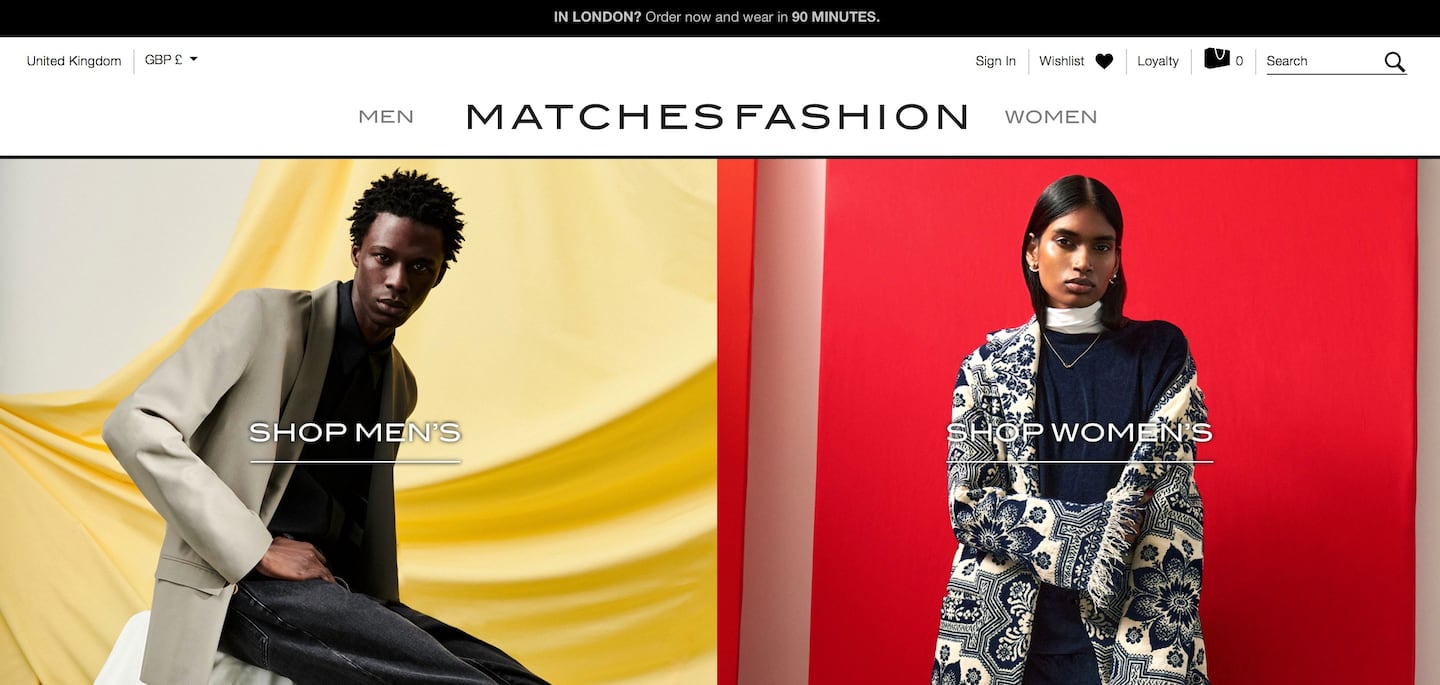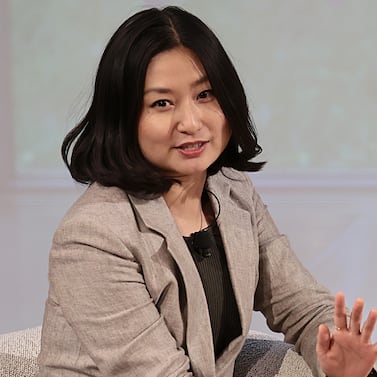
The Business of Fashion
Agenda-setting intelligence, analysis and advice for the global fashion community.

Agenda-setting intelligence, analysis and advice for the global fashion community.

Less than a year into his tenure, Matchesfashion chief Paolo De Cesare will leave the top post, making way for Nick Beighton, according to a person familiar with the matter.
Beighton, who was the chief executive at fast fashion e-commerce retailer Asos until last October, will be the fourth chief executive at Matchesfashion in less than five years. The company declined to comment.
In his 12-year run at Asos, Beighton grew the retailer from generating £223 million ($265 million) in sales to nearly £4 billion in fiscal 2021. He oversaw Asos’ £295 million acquisition of Topshop and its sister brands last year.
De Cesare, the former chief executive of the Parisian department store Printemps, arrived at Matches in September 2021. He replaced Matches’ prior CEO, Ajay Kavan, an Amazon alum, who was tapped for the job in 2020 and abruptly stepped down after less than a year. Prior to Kavan, Ulric Jerome, who had been hired by founders Tom and Ruth Chapman in 2013, served as CEO until his departure in August 2019.
ADVERTISEMENT
Private equity firm Apax Partners acquired a majority stake in Matchesfashion in 2017, in a deal that reportedly valued the retailer at $1 billion.
While other digital luxury retailers thrived in the pandemic, Matchesfashion saw significant retraction in 2020. In the year ending Jan. 31, 2021, it posted a loss of £36.6 million as well as a 10 percent revenue drop, to £392 million — the first time sales fell since its e-commerce launch in 2007. For its troubles, the company cited supply chain disruptions and subsequent overstock issues, which led to deep promotions.
That’s in stark contrast to rival Farfetch, for instance, whose 2020 gross merchandise value, a measure of total sales on the platform, rose 49 percent year-over-year.
Matchesfashion raised £45 million from Apax to fund the business that year, and raised another £40 million from Apax in 2021 to pursue future growth, the company said.
Even before the pandemic, Matches struggled with margins. In the fiscal year ending Jan. 31, 2020, the retailer reported a £5.9 million ($7.9 million) loss, while sales grew 16 percent year-over-year.
Luxury e-commerce remains a competitive and increasingly crowded sector, with few players that have accomplished profitability. Differentiation is difficult as retailers like Matches, Farfetch, Net-a-Porter and Mytheresa all compete for the same customers with a similar offering of brands.
The online channel, meanwhile, has grown costly to operate. Both customer acquisition and fulfilment expenses have risen relentlessly since the onset of the pandemic.
ADVERTISEMENT
Online luxury retail is now 20 years old. But after two decades of innovation, once-groundbreaking multi-brand giants face significant changes in consumer behaviour — and a growing, diverse stable of competitors — just as the coronavirus epidemic turns the world upside down. What happens now?
The retailer, facing growing pains of its own, is launching a new 'Innovators Programme' to bolster the fledgling labels that help set it apart from competitors in a crowded luxury e-commerce market.
Former Amazon exec Ajay Kavan is out after a year in the role, with board member Maureen Chiquet to take the reins while the company searches for a new boss.

Cathaleen Chen is Retail Correspondent at The Business of Fashion. She is based in New York and drives BoF’s coverage of the retail and direct-to-consumer sectors.
Brands from Valentino to Prada and start-ups like Pulco Studios are vying to cash in on the racket sport’s aspirational aesthetic and affluent fanbase.
The fashion giant has been working with advisers to study possibilities for the Marc Jacobs brand after being approached by suitors.
A runway show at corporate headquarters underscored how the brand’s nearly decade-long quest to elevate its image — and prices — is finally paying off.
Mining company Anglo American is considering offloading its storied diamond unit. It won’t be an easy sell.